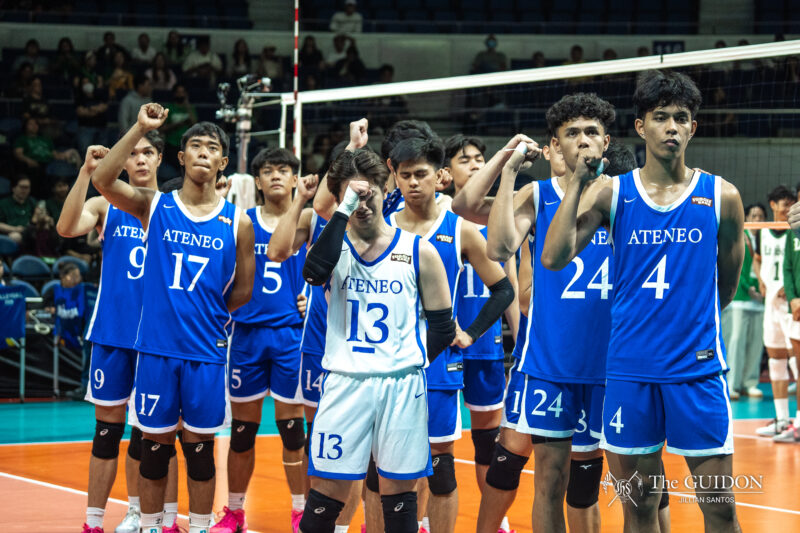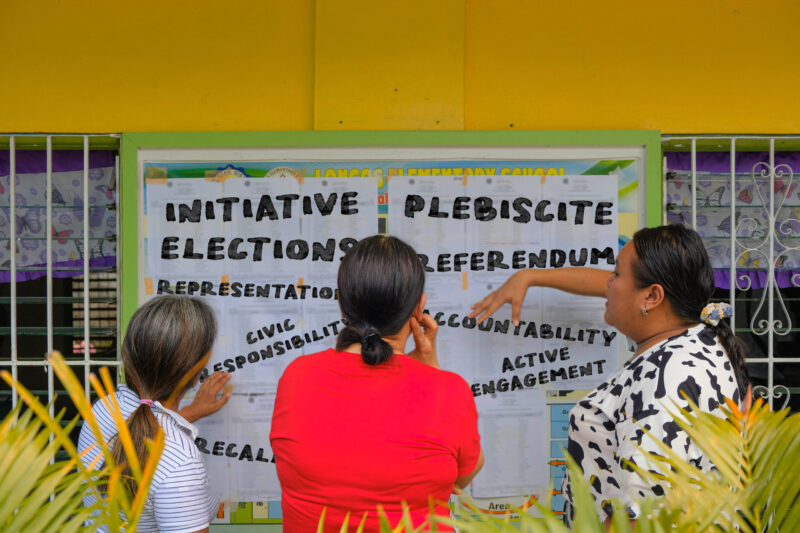In Season 72, the Ateneo sports program silently basked in recognition for its remarkable finishes in the UAAP. Two teams were able to complete a back-to-back quest for championship trophies: the Blue Judokas and the Blue Eagles. The Blue and Lady Tankers and the Blue Jins seized second place. The Lady Spikers and the Blue Tracksters came in third.
As the first half the school year draws to a conclusion, Season 73 is shaping up to show as much promise as the last, if not more. The Blue Tracksters emerged victorious during their first ever international meet held in Sabah, Malaysia, the Blue Eagles completed Ateneo’s first-ever UAAP three-peat and the Blue Shuttlers grabbed runners-up honors in the UAAP.
Clearly, Ateneo’s athletes have proven to be commendable in more ways than one, with their stars shining as bright as the trophies on their shelves. But as noteworthy as the athletes are, the people working behind the scenes ensuring the well-being of the varsity teams deserve credit as well. From handling sponsors to providing academic guidance, the student managers and the staff of the University Athletics Office prove to be essential factors to our teams’ triumphs.
At the helm of success
A common misconception about student managers is that they are only in it for the free ride. Not only do they get exempted from PE and NSTP; they also have access to all the games and sponsored freebies.
Yet the work entails more than just being on-call for the teams. Aside from assisting the players and coaches during trainings and games, they also have to keep track of both individual and team statistics, look for sponsors, and run errands.
“It’s not all about the perks or exemptions. Okay lang naman kahit wala (It’s fine if there’s none),” Olen Villarica muses. As the Track and Field teams’ manager, Olen and her co-managers are committed to a fair amount of painstaking work, which includes helping out in team trainings, which can be as often as every day. Administrative tasks consist of everything from preparing food to reserving the teams’ transportation for out-of-town meets.
“I think the most challenging part of being a manager is the time [it] demands,” adds Pia Ojeda. Having managed the three-peat champion Blue Eagles for three UAAP seasons, Pia has been forced to master the art of time management. Her years of experience as a team manager have taught her to balance her responsibilities with ease.
“It’s fulfilling to be able to help the team, kahit na minsan, hindi nila mapapansin yung ginagawa ko (they may not always notice what I do),” Olen says. “Ouch,” she adds under her breath, laughing. “Sabi ni coach, kailangan ng good management and good motivation. I’m trying to do my best, [I’m trying] to do my part.”
Likewise, Pia shares, “I am aware that majority of the Ateneo community probably don’t realize we exist but knowing that the team does makes it worth it. The team appreciates what we do and how much we sacrifice and that’s the most important.”
Not surprisingly, this is how most student managers feel about working closely with teams that have grown to become their second families, despite the many responsibilities attached to the title of Student Manager.
Suspended from play
The University Athletics Office (UAO) maintains that no athlete is given any sort of special treatment. If they can’t make the grade, they simply can’t play.
“[In that regard] there’s no difference between an athlete and a non-athlete,” Benjo Afuang, coordinator of the College Athletics Office since 2007, says firmly.
Given that student-athletes work around tight schedules that don’t only revolve around academics but also include practices, and, of course, actual games, the struggle on their end is almost inevitable. A more structured system in the coming years is to be implemented, but in the meantime, review sessions have been made available to athletic scholars.
“Tutoring”, however, s shunned. Emmanuel Fernandez, Assistant Director for Operations at the UAO believes that monitoring is the appropriate term for the assistance given to athletes. “It’s not tutoring per se. We don’t want student-athletes to come to us and say, ‘I failed eh. Midterms na and hindi pa ako nag-aaral (I failed, it’s already midterms and I haven’t studied).’”
Though academic difficulty and time constraint are to be expected, the office wants each athlete to get the best of the Ateneo experience. “We want our student-athletes to be just like everyone else,” Afuang clarifies. “If hell week comes, then they will experience hell week also.”
The solution to academic concerns, then: “We try to look for teachers or grad students who are willing to help. We linked up with the Ateneo Mathematics Society,” says Afuang. “We do also have to guide them (student-athletes).”
The ties that bind
Given their close proximity to the team, it is only natural that the managers establish close friendships with the players and coaches.
“If there’s one thing about being a manager that I love the most it’s the family atmosphere we have,” shares Pia. “We treat everyone with respect and we all look out after each other.”
From eating their meals together to giving out love advice, the bond between manager and team has clearly developed into a deeper familiarity. “They make me feel that I’m part of the team,” Olen adds. “Nakikita ko yung friendship, yung pagka-family.”
For the UAO, which oversees everything that has to do with student-athletes, there is a greater motivation. “We protect our own. It’s the goal—to graduate. If they are here in their first year of college, they should be here in their 4th, 5th, 6th year, to graduate,” finishes Fernandez.
It may not be wrong to say that Ateneo teams win because of the exceptional talent the athletes possess. But behind every victory are people who deserve equal credit, working to make sure that their efforts behind the scenes translate to success on the court and beyond.






